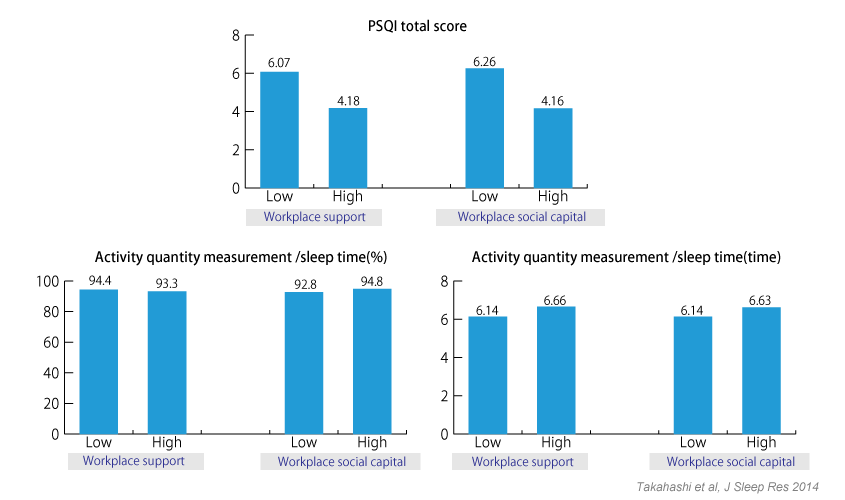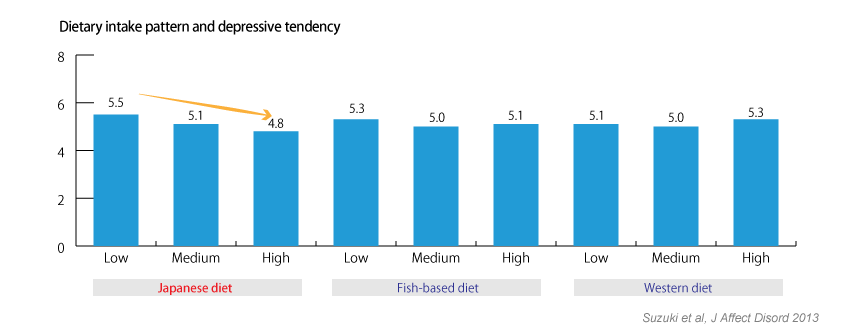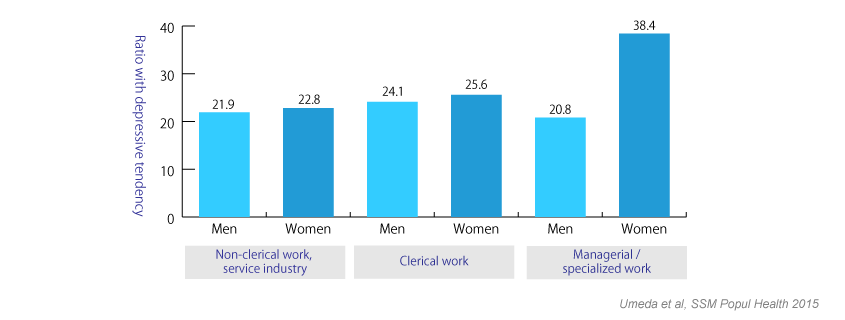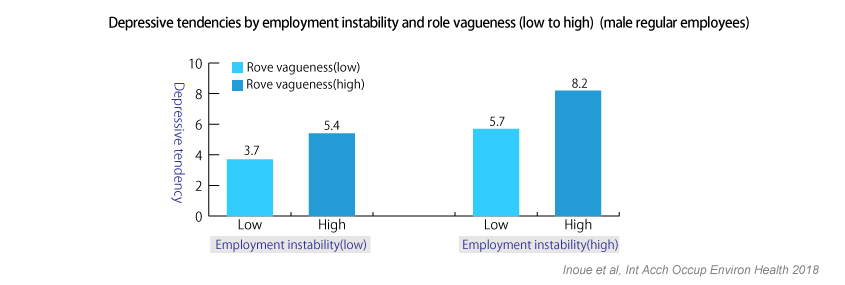 Achievements
Achievements
The previous J-HOPE that was research into new areas had many results. Here we will introduce the results that contributed to the health of laborers related to diet as well as the results that demonstrated the connection between laborers' health and the psychologically positive workplace factors that have recently been observed.
People in workplaces with a lot of social capital have good mental health
Close attention has been paid to the notion of social capital. It has been demonstrated that the more social capital there is in workplaces where people can do their best together and trust their colleagues, the better the psychological health of the laborers is.

There is a correlation between good quality and quantity of sleep and the social capital of the workplace
It became clear that when workplace support and social capital were both favorable, both the quality and quantity of sleep were good.

CRP (inflammation) was low for laborers who felt a lot of support from their superiors and for laborers with a high level of work engagement
Having support from superiors and feeling actively involved in work (work engagement) were both positive psychological factors that have recently been noticed in workplaces. When these conditions are favorable, measurement taken a year later showed a decrease in the inflammation reaction indicators.

Laborers who had a well-balanced diet of Japanese food tended to have lower rates of depression
Having support from superiors and feeling actively involved in work (work engagement) were both positive psychological factors that have recently been noticed in workplaces. When these conditions are favorable, measurements taken a year later showed a decrease in the inflammation reaction indicators.

Women have greater depressive tendencies the higher their occupational position
Although the number of women with important corporate positions is increasing, it was found that women had greater depressive tendencies the higher their occupational standing. Not receiving adequate remuneration for their work volume was found to be among the top reasons for this

Workers with medium work engagement have the lowest risk of depression onset
It was found that when workers who do not exercise at all start performing light exercise that does not leave them breathless or cause palpitations at least once per week, their regular health checkup results (in particular, LDL cholesterol and hemoglobin A1c in men and hemoglobin A1c in women) 1 year later improve.

Regular male employees have increased depressive tendencies as their employment is unstable and workplace role is vague
Employment anxiety is becoming more common with the increase in non-regular employees and regular employees are also afflicted without exception. Male regular employees in particular were found to have strong depressive tendencies when in workplaces with unstable employment and vague roles.





